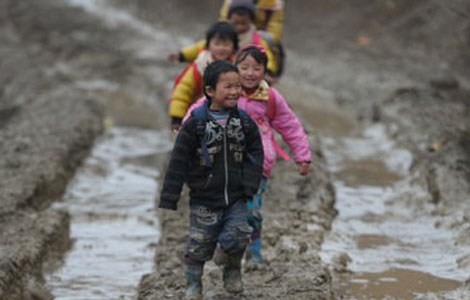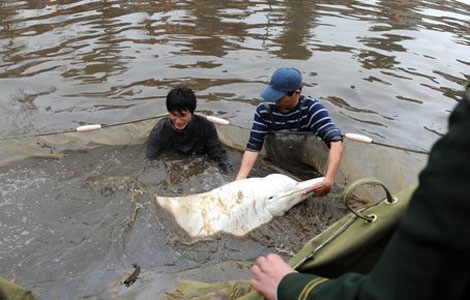 |
|
|
|
|||||||||||
BEIJING - Rash as it is, the United States' latest decision to enlist World Trade Organization (WTO) support against China's rare earth policy is based upon unfair accusations.
The United States, European Union and Japan have teamed up to bring a joint case against China to the WTO over alleged export controls on rare earths, which they claim are hurting domestic manufacturers.
The accusations, which stress that China's rare earth policies have restricted global supplies, can hardly hold up, with demand only filling around half the export quotas last year.
It's well recognized that rare earths, a class of 17 mineral elements, are one of the most sought-after metals for their vital roles in green technologies like wind turbines and electric car batteries, and of particular concern, in military sectors.
If following the precedents set by the United States, exhaustable resources of great strategic importance should have not been applicable to free-trade theories when "national security" is concerned.
However, for decades, China has been feeding most of the world's demand for the metals. Excessive exploitation, antiquated mining technologies and previously lax environmental standards have taxed the country's environment.
In some small towns in East China's Jiangxi province, where reserves of precious ion-absorbed-type rare earths abound, lavish exploitation of the metals since the late 1980s has not only destroyed local landscapes, but also poisoned streams and crops.
Therefore, China's rare earth policies - implementing domestic production caps, export quotas, stricter environment standards and resource taxes, are reasonable.
Pressing China to abort these policies is like building a greener and cleaner future by exploiting China's environment.
As a rule, the WTO allows its members to take necessary measures to protect resources and environment, and considers it fair if export restraints are accompanied by simultaneous restrictions over domestic production or consumption.
China's policies, in line with the WTO rules, should not draw criticism.
The fact is, although China now produces more than 90 percent of the world's rare earth supplies, it does not have all the deposits. Most nations with rare earth deposits, including the United States, closed their own mines decades ago and craved for cheap supplies from China.
Rare-earth mining and processing is notoriously devastating to the environment, making it politically difficult for those countries to reopen the mines, which means China is still expected to contribute tremendously to rare earth supplies.
However, those undeniable truths are overlooked as tunnel vision only sees unfair trading practices.
Few if any trade issues have been as heated in the last several years as rare earths. It's predictable that the United States would bring the matter out under fierce election-year pressures at home.
In the face of such unreasonable and unfair charges, China will make no hesitation in defending its rights.
Wu Ying, iPad, Jeremy Lin, Valentine's Day, Real Name, Whitney Houston, Syria,Iranian issue, Sanyan tourism, Giving birth in Hong Kong, Cadmium spill, housing policy

|

|

|

|

|

|